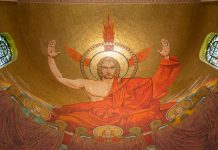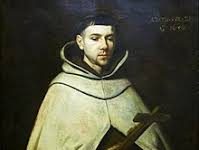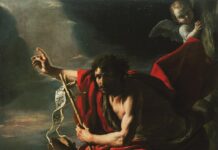May 27th marks the anniversary of the promulgation of the first official Code of Canon Law, by Benedict XV in 1917. The laborious – even Herculean – endeavour of collating the two millennia wide swathe of Church laws, customs and ordinances was begun by the indomitable Saint Pius X, but completed under his successor. Some thought it simply could not be done, to synthesize the immense amount of material into one handy handbook, but, as Christ says in today’s Gospel, all things are possible with God. The Pio-Benedictine code is now known as the ‘old code’, as a new edition was promulgated by Pope Saint John Paul II in 1983. What is good in the old, however, should not be discounted, as Christ also says of the wise man, who accepts the new, while not rejecting what came before. For behind the law stands the truth, and the Truth, on which all law must be founded; and law itself is a means to an end. As the final code (can. 1752) says, in salute animarum…Ecclesia suprema semper lex esse debet – the supreme law in the Church should always be the salvation of souls. Just so.
There has been a tornado outbreak in several southern U.S. states, leaving at least 21 dead, and dozens injured, with widespread damage. We pray for the victims, and for all those affected. Yet, before we use such disasters as proof of ‘climate change’, calling for the cessation of all things carbon, we should put this into historical context. To take but two examples from this day in history, amongst any number of others: In 1896, an F-4 tornado struck Saint Louis, killing 225 people and causing $10 million in damage, which, in today’s terms, was many more millions. In 1997, another killer tornado hit Texas, killing 27. Extreme weather events have been with us since the Earth was young – even more in our planets early tempestuous temper tantrums.
Storms, heat waves, and all the rest of it were around before industrialization, and will be with us unto the end of time. The best we can do is prepare with what human means we might – better buildings and such – and trust in the good God, Who knows what He’s about.
And on this day in 1942, two operatives – Josef Gabčík (a Czech) and Jan Kubiš (a Slovak) – attacked the motorcar of Reinhardt Heydrich, one of the highest-ranking Nazis, and one of the main architects of the Holocaust. The Sten submachine gun jammed – complaints were common of the British-made weapon – so they threw a landmine, which exploded under the rear tire. Heydrich was mortally wounded by shrapnel, dying a slow death from sepsis eight days later. Both Gabčík and Kubiš escaped, narrowly, after a gun battle and a chase. The event makes for harrowing reading. The Nazis retaliated by razing two whole villages, massacring all the men, and sending the women and children to death camps. According to one estimate, 5,000 people were murdered, and 13,000 arrested (many of them ending up dead), none of them were connected to the assassination (even if Nazi lies implied as much).
This raises questions of proportionate morality – one Nazi for nearly twenty thousand? But the fog of war raises many fraught and complex moral questions, which are not easy to answer. God’s providence is mysterious, as we read in the book of Job, and we return again to the basis: trust in God and praise Him still. At that final parousia, all things will be made clear, and we can only do the best we can, by the wits of our own conscience.










